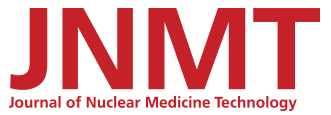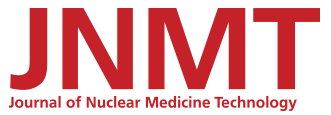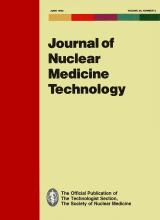Abstract
During transport, radiopharmaceuticals may break down in radiochemical purity and stability due to various physical conditions. In this study, I examined the effects of air, temperature changes, agitation, and time on technetium-99m (99mTc) mertiatide (MAG3) (Mallinckrodt Medical, St Louis, MO), 99mTc sestamibi (Cardiolite) (Du Pont Radiopharmaceuticals, N. Billerica, MA), and 99mTc teboroxime (CardioTec) (Squibb Diagnostics, Princeton, NJ). Samples of each radiopharmaceutical were subjected to air, high and low temperatures, and agitation in simulated conditions. Quality control procedures were performed on the test samples at different time intervals to determine each radiopharmaceutical’s radiochemical purity and stability. All of the radiopharmaceuticals remained at least 90% radiochemically pure, under all of the conditions. This study demonstrates that MAG3, Cardiolite, and CardioTec remained stable and radiochemically pure under various physical conditions that might be encountered during transport from a commercial nuclear pharmacy.







